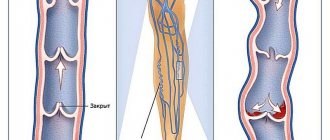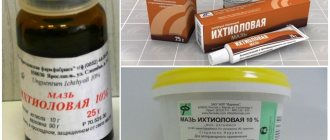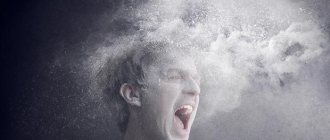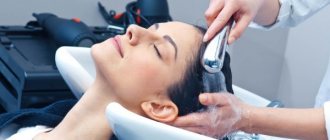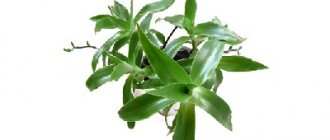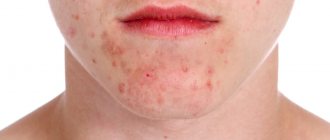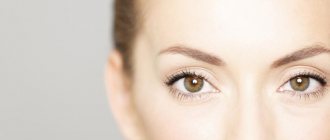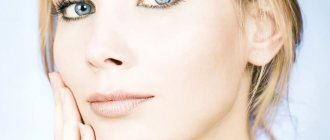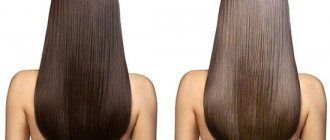The phenomenon of flaking scalp occurs in many people. It can cause a lot of trouble: when skin particles get on clothes, it creates an unkempt appearance.
And sometimes this problem is accompanied by itching. To improve the condition of the scalp and get rid of the problem of flaking, you need to know the causes of its occurrence and apply the right treatment.
Types and symptoms
Let's consider what signs can be used to recognize peeling skin on the head at the initial stage.
In the human body, there is a constant renewal of cells in all organs, including the skin of the head. Therefore, their moderate rejection is a physiological process and should not cause concern. But if the scalp is too dry, itchy, very flaky, and scales are rejected, then there is a high probability of a fungal infection.
If this unpleasant phenomenon occurs, you should seek qualified medical help. The presence of a fungal disease or other disorder can be detected using laboratory tests.
Timely treatment can significantly improve the condition of the skin, it will stop itching and flaking.
After just two to three weeks, the white flakes on your hair will disappear.
Possible causes of peeling
So why does flaking of the scalp occur? What causes the scalp to itch so much? In fact, there are many reasons why this happens. Some of them can be eliminated on your own, while others, on the contrary, require expert advice.
For example: if the scalp peels after washing, then you need to replace aggressive or inappropriate hair care products with more gentle, hypoallergenic ones. And in case of illness, you cannot self-medicate.
Dandruff, which occurs as a result of exfoliation of cells, is not contagious in nature, but there are exceptions, for example, lichen.
The skin on the head may peel and itch due to the following pathological conditions:
| Disease | Its external manifestations |
| Eczema | The appearance of peeling may be preceded by an allergy. Rashes, swelling, and itching occur. |
| Lichen | Hair falls out in the affected area, the skin changes color. |
| Seborrheic dermatitis | Yellow, oily skin flakes form that itch. Areas with many sebaceous glands are affected. |
| Psoriasis | The skin turns red and plaques form. |
But most often, the causes of peeling skin on the head lie in general diseases or other disorders in the body. The most common of them:
- Malassezia fungus;
- decreased immune defense, fatigue;
- allergic reactions, expressed in peeling of the skin in the form of crusts;
- unskilled cosmetic procedure;
- lack of vitamins and microelements;
- aggressive influence of ultraviolet rays;
- frequent hair washing;
- using inappropriate hair care products.
Whatever the reasons for this problem, it is imperative to take timely measures aimed at solving it.
You should be especially careful if peeling is accompanied by additional symptoms, such as the appearance of pimples on the head.
What to do if your scalp is flaky
A balanced diet will prevent your scalp from flaking
To get rid of burning and flaking of the scalp, you need to:
- Eat properly and balanced.
- Wear a hat when exposed to the sun in scorching heat and winter cold.
- Choose products for washing curls more carefully.
- Carry out procedures in beauty salons where experienced specialists work.
- Use appropriate hair masks.
Lifestyle changes in many cases can overcome this problem. The listed set of measures gradually leads to the relief of inflammation and normalization of the process of sebum production. If your skin continues to peel, you should make an appointment with a dermatologist or trichologist.
Useful tips
There are a number of simple measures that will help you avoid disorders and diseases that cause flaking of the scalp.
Here are some of them:
- Adhere to proper and balanced nutrition: you should include vegetables, fruits, berries, nuts, dairy and fish dishes in your diet.
- Drink the optimal amount of liquid (for an adult this is up to 1.5 liters of water).
- Take care of your hair with a wooden comb and wash it regularly.
- Use curl styling products to a minimum (no more than once a week).
- Avoid washing your hair with hot water and use warm water.
- Do not blow dry your hair.
You also need to know that the scalp can itch due to stress, poor environment, deficiency of fluoride, vitamins B12 and B6.
Help get rid of this problem and change the shampoo if that was the cause. In general, you can minimize the likelihood of a flaky scalp by following the tips above. But if the problem does appear, the most correct solution would be to visit a doctor.
Drug treatment
Cryotherapy for flaking scalp
When contacting a specialist, he refers the patient for laboratory tests and, based on the test results, prescribes a suitable medication.
The arsenal of products and procedures that help when the scalp is flaky exists:
- antifungal shampoo;
- a product containing tar or resin;
- cryomassage;
- darsonvalization;
- multivitamin complex.
Let's consider which of them are used in which case.
Prevention
To prevent itching and flaking, you must follow certain rules:
- use high-quality cosmetics;
- be sure to check whether new products cause allergic reactions;
- balance your diet as much as possible and, if possible, avoid junk food;
- use strengthening and nourishing hair masks;
- maintain personal hygiene and wash your hair regularly;
- strengthen immunity;
- try to dry your hair with a hair dryer less often or at least use medium power.
Also, do not forget that one of the causes of flaking and itching is chronic diseases. In this case, it is necessary to take preventive measures aimed at controlling these chronic conditions of the body and preventing exacerbation. And also, do not neglect the recommendations of doctors and strictly follow the prescribed treatment plan.
Methods for treating dandruff of various natures
The problem of flaking scalp often occurs during the cold season, and is associated with reduced resistance of the body's defenses.
Products containing sulfur, selenium and zinc are excellent for combating saprophytes. Active components stop the process of infection propagation, prevent pathogenic fungi from penetrating deep into the skin and prevent massive hair loss.
These medications are available in the form of ointments, pastes and shampoos. For more effective therapy, it is necessary to use all three forms of drugs.
Dandruff can also be treated with shampoo containing ketoconazole. It is used 2 times a week for a month. This remedy is also suitable for getting rid of lichen. It is used once every day, the course duration is 5 days.
Dandruff can also be defeated with the help of drugs where panthenol acts as an active ingredient. It perfectly eliminates dryness and thus solves the problem of flaking skin.
Physiotherapeutic measures to combat dandruff include cryomassage. It is carried out using liquid nitrogen and causes the blood vessels to narrow. In this case, the capillaries expand, and this improves the nutrition of the hair follicles.
The use of electric current, or darsonvalization, has an anti-inflammatory and antibacterial effect on the human scalp. The procedure is carried out before applying keratolytics.
When peeling the epidermis of the hairline, doctors often prescribe salicylic oil. It has a softening effect on crusts and dandruff. It is applied to the surface of the head in a circular, light motion.
After 6-8 hours, the treatment is washed off. After using the drug, removing scales becomes much easier. Use salicylic oil 2 times a week.
When a problem arises with exfoliation of the scalp, it is very important to saturate the body with the missing substances. But a doctor must prescribe vitamin preparations, because a specialist is able to better determine which substances a person is deficient in.
Getting rid of the manifestations of psoriasis
If there is a suspicion of the allergic nature of this disease, then the doctor will prescribe antihistamines. They relieve the itching.
In case of severe damage, medications containing calcium (chloride and gluconate) are used to desensitize the body.
When detoxification is necessary, doctors prescribe absorbents.
If psoriasis is of an autoimmune nature, it should be treated with immunosuppressants.
The disease is well controlled by glucocorticosteroids, produced in the form of creams and ointments. With their help, inflammatory processes are cured, which has a positive effect on the condition of the scalp.
Taking vitamin D and keratolytics has a similar effect.
If an infection of bacterial origin is associated with external signs of psoriasis, antibiotics must be taken.
Treatment with folk remedies
Itching and flaking on the scalp can often be treated with home remedies. It should be taken into account that there are many reasons for the occurrence of an illness, and what may be effective in one case turns out to be completely useless in another.
Therefore, even treatment using traditional recipes is better to start after a visit to the doctor and he determines the nature of the disease.
There are a number of effective remedies that have shown good results in many cases.
Egg mask
According to reviews of people who have used this remedy, it helps with the occurrence of psoriatic plaques. To prepare it, you need to take a raw chicken egg, put it together with the shell in a glass and pour it with table vinegar.
Leave for 24 hours. Then the shells are ground and mixed with the resulting solution. At the end add 1 tbsp. spoon of pork fat.
Apply the medicine to the affected areas and leave for up to half an hour. Then wash off and lubricate the affected areas with zinc ointment.
Olive-linseed oil
If your scalp is dry and flaky, this product helps a lot. It prevents peeling.
The medicine is made like this: olive and flax oils are combined (1 tablespoon each) and placed in a water bath. Then the warm product is rubbed into the scalp.
After this, put on a rubber cap and wrap your head with a towel. Leave for 30 minutes. Then you need to rinse with warm water using shampoo that has a neutral pH.
Oatmeal mask
This is a nourishing moisturizer that has a cleansing effect. It contains a lot of useful substances.
To prepare it, the following dried herbs are used: nettle, plantain, chamomile, sage and oatmeal.
First, make a decoction of nettle and other medicinal plants. It is cooled and filtered. Then this drug is poured into the flakes to swell. This paste is rubbed into the scalp. Put on a cap and keep it on for 2 hours, then wash it off.
Rinse aids
In addition to masks, there are also recipes for medicinal rinses. A product based on nettle, calamus root, and coltsfoot can give good results. All plants are taken equally (2 tablespoons each) and poured with 1 liter of boiling water. Keep in a water bath for 10 minutes. Then wrap for 1 hour.
There is a calendula rinse. Add a little vinegar or lemon juice to the finished product.
In most cases, traditional methods for adults are able to overcome the problem of flaking scalp, but if the condition of the skin worsens, you should immediately make an appointment with a doctor!
Diagnostics
If you are faced with the problem of peeling for the first time, think about what changes have occurred in your life. Maybe you have recently had to go through a serious shock, you are in a state of constant stress, or have suffered some kind of illness that could reduce the body’s protective function.
If you started using a new shampoo or conditioner, or recently tried exotic fruits and foods, this could also trigger scalp problems. But, if the peeling is very heavy and the flakes are quite large, it may be a sign of a more serious condition, such as psoriasis, eczema, seborrheic dermatitis or eczema. Such a diagnosis can only be made by a doctor, and only after a series of tests.
Seborrheic dermatitis and ringworm can be diagnosed by collecting material from the problem area and then studying it in a laboratory. Using scraping analysis, the fungal pathogen can be identified. If your doctor suspects that peeling may be caused by psoriasis, he may prescribe the following tests:
- analysis of feces to identify helminths;
- urine analysis, which will detect a violation of the water-salt balance;
- blood test for HIV;
- blood test for cholesterol and glucose levels;
- General and biochemical blood test.
The doctor also collects information about the patient’s chronic diseases, and, if necessary, may also prescribe an allergy test and an immunogram.
